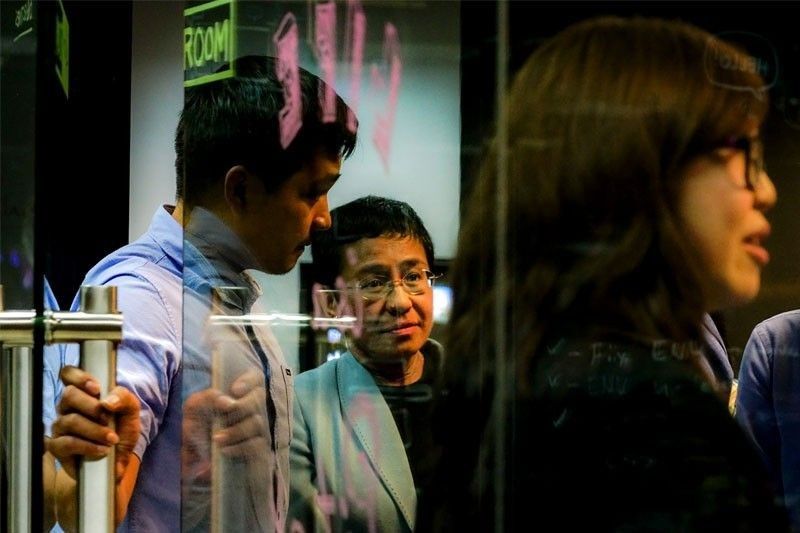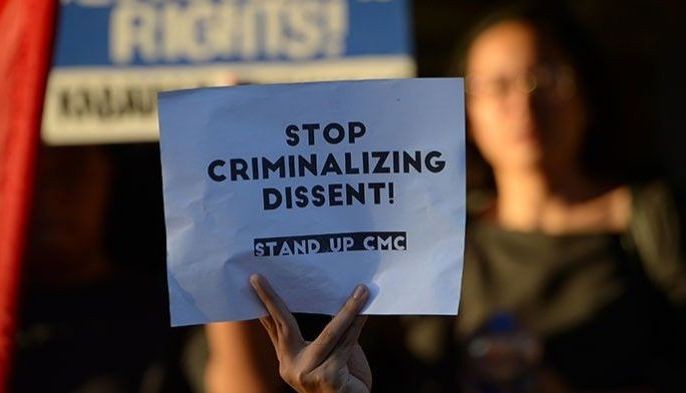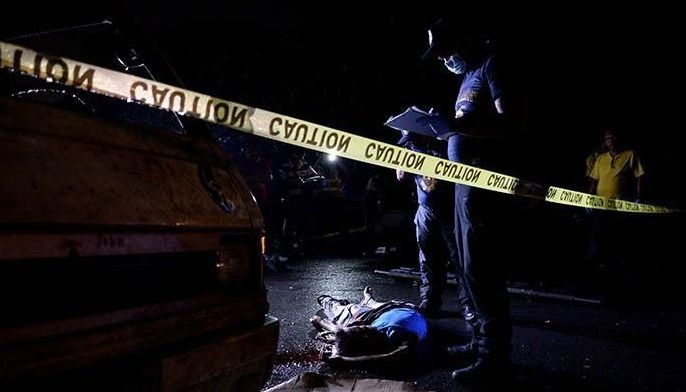UN expert stresses importance of journalism to court set to rule on cyber libel case vs Ressa

MANILA, Philippines — Days before the Manila court hands down its verdict on the cyber libel case against Rappler CEO Maria Ressa, a United Nations expert sought to tell the court of the role of journalists and freedom of expression.
UN Special Rapporteur on the Right to Freedom of Opinion and Expression David Kaye sought to file a brief of amici curiae to the Manila Regional Trial Court Branch 46 on Thursday.
Amici curiae means “friend of the court.” Rappler said the brief was filed on Thursday. Since this brief was unsolicited, the court needs to admit it first, and it must do so before it hands down its verdict on the case Monday, June 15.
The ruling was originally set to be promulgated on April 3, but was postponed as courts drastically reduced operations to restrict movement and minimize risk of COVID-19 transmission.
In the separate motion for leave to file the amicus curiae brief, Kaye said the document “will provide this Honorable Court with greater understanding of the role of journalists and the special protection that all Members States must accord."
Decriminalization of libel
Kaye also noted that the Human Rights Committee “urges States to consider the decriminalization of defamation.”
“The Committee recommends that in dealing with defamation cases, ‘a public interest in the subject matter of the criticism should be recognized as a defense,’” he added.
Members of the Philippine press have long rallied for the decriminalization of libel, a law that has been carried over from 1932.
The Center for Media Freedom and Responsibility said in 2014 that the “libel provisions of the RPC have been problematic for free expression and press freedom since 1932...which has been used in many instances to silence journalists.”
The media watchdog monitors libel cases against reporters across the country.
Continuous publication rule
Kaye warned that the application of the Cybercrime Prevention Act of 2012 “to individuals years after the posting of an article, under the guise of online continuous publication, raise particular concerns under the right to freedom of expression.”
“Such application may significantly chill freedom of expression by not clearly delineating to either authorities or online writers when a violation of the law has occurred,” he said.
The case emanated from a complaint filed by businessman Wilfredo Keng assailing an article the online news site first published in May 2012 or four months before the cybercrime law was instituted.
But the Department of Justice cited the “multiple publication rule”—noting that the story was updated on Feb. 19, 2014—and indicted Rappler, Ressa and Santos on cyber libel charges.
Ressa and Santos, however, argued that there was no substantial change made in the article when it was updated in 2014, but the court said that their argument is “evidentiary in nature which the defense should prove during trial.”
“‘Continuous publication’ deployed as an argument to extend the statue of limitations in the online context, unduly penalizes online speech more harshly than print media,” the UN expert said.
- Latest
- Trending

































